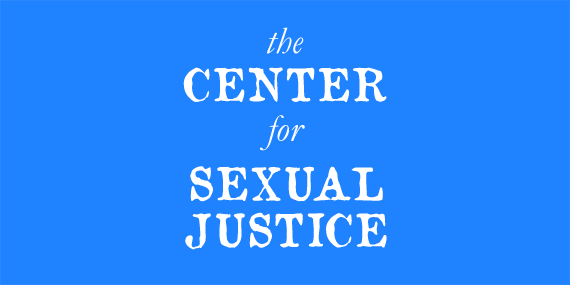
In 2005, when Danny was 17 years old, he began dating a 16-year-old boy. Like many teenage romances, this one did not end well -- but not for the reasons you might expect. When the 16-year-old's parents found out about the relationship, they blamed Danny for "turning their son gay," and, incensed, called the police to report the age difference. Danny ended up sentenced to jail for statutory rape. While incarcerated, he discovered that his boyfriend had taken his own life; the trauma of Danny's conviction and the public fallout of his parents' intervention proved too much for him. Once released three years later, Danny had to register yearly as a sex offender on a public online registry. His parole officer, who was intolerant of gay parolees, imposed arbitrary restrictions. These included limits on travel and Internet use, causing Danny to feel socially isolated and cut off from peers and support systems. Today, due to the challenges of finding work as a registrant, Danny lives with his parents. They too are exposed to the social stigma and harassment caused by their son's registry status.
Danny's tale is shocking, but by no means singular. It is just one of countless stories of queers who find themselves at the mercy of unreasonable and homophobic/transphobic sex laws. As Executive Director of the newly founded non-profit organization The Center for Sexual Justice, I wanted to share Danny's story with the Huffington Post Gay Voices community as a means of introducing our organization and addressing why our work is vital at this time of shifting queer politics. The push for gay marriage has seen victories nationwide. As such, it is now time to consider new frontiers. We believe that the queer community should widen its scope of activism and take a critical look at the ways in which we are still, as we have been for quite some time, criminalized and targeted for public persecution by unjust sex laws.
Sexual minorities, including queer and LGBT people, face many obstacles when navigating the criminal justice system. One especially difficult challenge is the treatment of sex within the legal system. Sex crimes and sex laws have had far-reaching repercussions, and queer people often find themselves targeted. There is a long, well-documented history of law enforcement entrapping queer people in prostitution busts and gay cruising stings. HIV status is increasingly criminalized nationwide. Trans* folk are harassed and singled out by law enforcement. Queer people are more likely to be targeted for civil commitment. Current sex laws ignore the needs and realities of queer youth, while seeking to criminalize their unique experiences.
In jails and prisons, queer people, especially youth, are extremely vulnerable, often the focus of sexual and physical abuse by inmates, guards, and staff. Many incarcerated queers are physically and emotionally isolated, with a lack of access to resources such as hormones, HIV medication, and condoms. Being incarcerated with a known same-sex sexual offense adds another layer of harassment and risk.
Rising hysteria around so-called "sex crimes" has created a new category of purported villain -- the sex offender. Queer people and other sexual minorities are disproportionately affected by sex laws and sex offender registries. Homophobic biases in lawmaking and law enforcement and hysteria around queer sex are largely to blame.
In order to keep track of people who have been convicted of a sexual offense, our state and federal governments have created surveillance registries: publicizing one's photo, address, and conviction record to anyone with an Internet connection. These registries are problematic and harmful, exposing registrants to harassment and vigilante violence and making it nearly impossible to find a job or secure housing. Due to rigid residency restrictions, lack of employment or stable shelter, social ostracism, public humiliation, and isolation, registrants are at a high risk of homelessness, unemployment, substance use, and mental illness. These registries created to keep children and families safe have become useless tools of oppression that shatter families and jeopardize public safety.
Once on the registry, many queer people feel isolation within the community of registrants and in treatment. Many treatment models are heteronormative and based on one-size-fits-all assumptions. There is a greater bias against same-gender sex crimes than heterosexual counterparts. Risk assessments are often homophobic and label a queer offender as being of an augmented risk level. "Sex offender" becomes one's identity as seen through the eyes of a heteronormative and anti-queer society and criminal justice system.
We at The Center for Sexual Justice envision a legal system that is free of hysteria and anti-sex bias, in which queer people and other sexual minorities are not discriminated against based on sexual desire, gender expression, or sexual participation. We see a conscientious and open-minded queer community that engages with issues of criminal justice that respect race, ethnicity, class, ability and sexual diversity.
We want to engage the queer community in a dialogue around sex offender issues and sex laws, and their effect on queers. We want to end discrimination based on sexual orientation, gender expression, and sexual practices in judicial legislation and proceedings. We want to educate the queer community and the public about how families are devastated by sex offender registries and foster empathy for those impacted. We want to organize a community of support for queer registrants, families, friends and allies in order to lessen the trauma of life on the registry, decrease isolation and better the lives of everyone affected.
We encourage anyone who has been affected by anti-queer sex laws or is interested in learning more about these issues to visit our website and reach out to us. We look forward to engaging vibrant and diverse queer communities in ongoing dialogue and collaboration.
